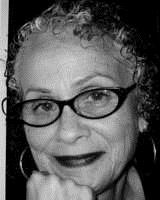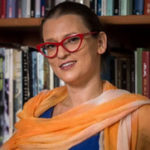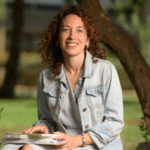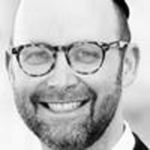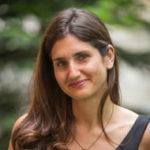It is a great pleasure to report on the Muriel Dimen Fellowship panel at this year’s IARPP international conference in Tel Aviv.
The four fellowship recipients came together in a panel honoring Muriel’s belief that an interdisciplinary conversation with professionals working in different academic fields can open new vistas for relational theory and practice, intellectual inquiry and political action.
Each fellow’s paper represented the culmination of a year studying relational psychoanalysis under the mentorship of leading IARPP members and applying this knowledge to their area of academic research.
Moderated by Chana Ullman (Israel) and Sharon Ziv Beiman (Israel), the panel centered on two diverse themes: on theoretical, scholarly and clinical studies of myth and religion, and on the study of underserved and traumatized populations. Although divergent in emphasis, the four presentations created a tapestry in which language, intergenerational transmission of trauma, institutions of power within culture and human beliefs all became interconnected, in the spirit of Dimen’s thought. Each fellow was introduced by her/his mentor, who described the experience of mentorship as a mutually enriching endeavor.
The first speaker, Ruth Kara Ivanov (Israel), a poet and scholar of Jewish mysticism and Kabala (mentored by Chana Ullman), discussed the most colorful hero in Jewish mythology, King David, in a presentation entitled “The Multiple Selves of King David.” She analyzed the manifold aspects of David’s complex personality by use of psychoanalytic terms such as the “multiple self” (Mitchel, Bromberg), “the dialectics of heroism” (Ullman), the “dark side of the heroic” (Grand), and Dimen’s critique of binary gender and sexual roles. David thus emerged as a collective entity, one reflecting the characters and hopes of his interpreters throughout the generations, and who represents, in Otto Rank’s term, “a dream of the masses of the people.”
Ivanov argued that, in their homilies, commentators are situated in the place of the “third party” who can bear witness to trauma and to “cross-generational transmission” in the Davidic dynasty. The sages, and later the Kabbalists, liberate King David from his inhuman and superhuman state, from his “absolute otherness” of a super-hero, into a healthy, normal otherness and deviance.
Following Dimen’s idea of “culture in mind,” Ortal Slobodin (Israel), an academic psychologist at Ben Gorion University of Beer-Sheva, collaborated with her mentor, Sharon Ziv Beiman, on a project designed to explore the relevance and applicability of relational thinking to therapeutic work with a cultural minority group of Bedouin families of the Negev. Twenty school psychologists working with Bedouin families were invited to participate in a 20-hour workshop on relational thinking.
The presentation, entitled “With Culture in Mind: Relational Thinking and the Bedouin Families of the Negev,” described the main themes and dilemmas that emerged during the workshop: (1) What is the unique meaning of subjectivity and intersubjectivity in a patriarchal, hierarchical society? For example, the group found it difficult to pin down the concept of subjectivity in a political and cultural climate that oppresses women and restricts them. (2) How should therapists balance modesty, reflectivity and shared mutuality (“to speak at eye level”) with cultural norms of hierarchy and authority? (3) How are social location and racial positioning reflected in and reproduced in the transference-countertransference enactments? The presentation illustrated vividly the therapeutic potential of relational ideas applied to a culture which challenges our Western conceptions of autonomy, choice and freedom.
Our third speaker, Mordechai Gofman (Israel) (mentored by Mitchel Becker), is a Charedi psychologist who works with Ultra-Orthodox communities. He described how the relational focus on subjective truth and multiple truths became particularly meaningful to him as an Orthodox psychologist living simultaneously in multiple worlds. In his presentation, “Religion as Truth, Truth as Religion, and Their Meeting Place in Psychoanalysis,” Gofman relied heavily on clinical material, focusing on how relational psychoanalysis with its stress on psychic, subjective truth should approach religion which views its truth as absolute. Two suggestions were raised: (1) Affirming with patients that an authentic emotional relationship with God, even if those emotions are negative, is a form of religious engagement. (2) Co-creation of religious exploration and experience between therapist and patient is also part of a spiritual search that is essential to religion.
Finally, our fourth presenter, Maya Fennig (Canada), a doctoral student of social work at McGill University (mentored by Uri Hadar), spoke on “Translating Trauma: The Impossible Role of Eritrean Refugee Interpreters in the Mental Health Encounter.” She focused on an unusual angle in studying the trauma of refugees: the complexities and dilemmas interpreters, who are often refugees themselves, face when working in mental health settings with refugees. She presented her reflections on a 12-month-long training she co-led for refugee interpreters in Israel as well as results of a recent scoping review she conducted on the topic. Fennig underscored the contribution of her work with Hadar to understanding the client-interpreter relationship from a relational perspective. Her core argument was that despite undeniable challenges, such as concerns around confidentiality and bias, interpreters have a positive impact on refugee clients’ quality of care and clinical outcomes.
The echoes of Muriel Dimen’s work on the clinical and ethical imperative of considering people’s internal life as voiced through individual, political, social and cultural contexts reverberated throughout this panel. From the scholarly study of King David as an ordinary multifaceted figure in a particular context, to throwing light on underprivileged populations with the aim of understanding power relations and alleviating suffering, through the clinically relevant reframing of spiritual truth, the panel demonstrated the fruitfulness of an interdisciplinary meeting of minds and pointed the path to continued collaborations in the future.
Chana Ullman, Ph.D. (Israel)
on behalf of Roberto D’Angelo, PsyD (Australia) and Hilary Offman, MD (Canada), co-chairs of Muriel Dimen Fellowship Committee, and Sharon Ziv Beiman (Israel), co-chair of panel, with the help of abstracts submitted by Ruth Kara-Ivanov, Ph.D, Ortal Slobodin, Ph.D, Mordechai Gofman, Ph.D and Maya Fennig, MSW.
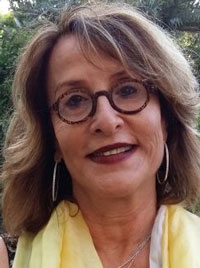 Chana Ullman
Chana Ullman
Email Chana Ullman
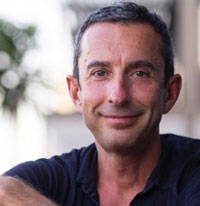 Roberto D’Angelo
Roberto D’Angelo
Email Roberto D’Angelo
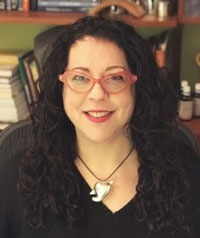 Hilary Offman
Hilary Offman
Email Hilary Offman

